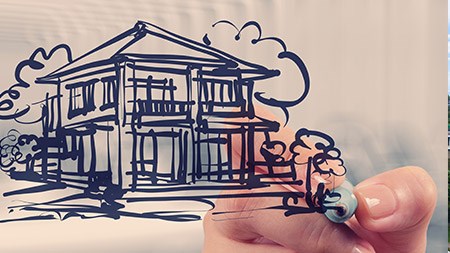Buying a home that is in serious need of renovation is not for everyone and can be riddled with disaster.
However, for those who do have the know-how and finances, it could be a very profitable and rewarding endeavour. The difference between a successful investment and a money-trap lies in choosing the right fixer-upper property from the start.
There are a few reasons why certain investors opt for these kinds of homes, such as the fact that with less competition in the market for fixer-uppers, they are generally lower-priced properties in spite of the market conditions. There is also a large potential on the return of investment at resale, with many investors buying fixer-upper homes with the sole intention of selling them for a profit at a later date. Making the right decisions from the beginning will have an impact on the end result of the property’s investment prospective.
The perfect home that everybody wants may be hidden under a variety of elements that would normally turn many buyers away, such as peeling paint and a sagging ceiling. An investor looking to find the ideal fixer-upper will have to see past all that to visualise the home’s true potential.
Location
No matter what kind of property a buyer is interested in, one aspect that will always need to be considered is location. A property’s location will largely determine its value once it has been fixed up and put on the market. If the house is in need of repair and so is the neighbourhood, there may be a risk of over-capitalising and having a nice house in a bad area. From an investment perspective, it is always better to purchase property in a desirable area that is close to a range of amenities – the rule is to rather buy the worst house in the best suburb than the best house in a suburb which is not well located.
Composition
Generally the most sought after type of home in a particular area is the one to choose. If most of the buyers in an area are looking for a three-bedroom home, then don’t buy a two-bedroom one, or if sectional title or estate properties are the way to go, choose an investment home where demand is strong.
Design
The general layout and design of the fixer-upper home needs to work. Moving walls or rectifying a home that has been designed badly can be very expensive. The layout of the home should flow and be practical. For example, if a buyer has small children they would not want bedrooms to be on opposite sides of the property.
Condition
It is important to consider the overall condition of the home to decide whether the renovations are manageable or require major changes. If too much needs to be done to make the house liveable, it may be worthwhile looking elsewhere. Aesthetic improvements are typically less costly and take less time than other modifications.
Less costly easy fixes:
Filling small cracks, repainting both interior and exterior.
Sanding and refinishing wooden floors, tiling or laying down new carpets.
Updating lighting with contemporary styles.
Refurbishing or replacing skirting boards.
Fixing broken windows.
Adding a deck.
Resurfacing kitchen cupboards.
Upgrading bathroom fixtures.
Replacing doors.
Potentially costly fixes:
Shoring up foundations.
Adding additional rooms, a garage or moving walls.
Replacing window frames throughout.
Replacing the roof.
Replacing plumbing and electrical works.
Pouring concrete for driveways, sidewalks and steps.
Complete kitchen or bathroom remodels (even though these changes can add value to home).
If you are unsure, you should get a professional home inspector to have a look at the property for any major defects that could be very costly to repair. Buyers wanting to purchase a fixer-upper should rather make sure they know what they are getting themselves into from the beginning of the project, than find out at the end.


